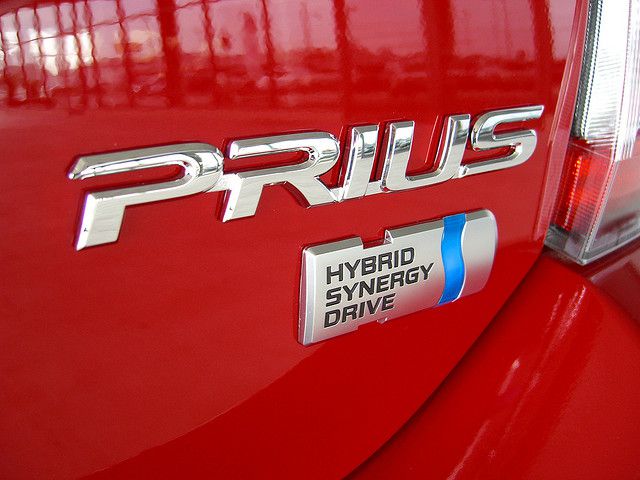-
 Ophidian
Ophidian
-
 LISA
LISA
-
 Nuisance
Nuisance
-
 Gonadotrophins
Gonadotrophins
-
 REDOC
REDOC
-
 Equatorial coordinates of a direction
Equatorial coordinates of a direction
-
 Metasomatose
Metasomatose
-
 Interactive kiosk
Interactive kiosk
-
 Full Moon
Full Moon
-
 Sedimentary basin
Sedimentary basin
-
 Onion
Onion
-
 IATA
IATA
-
 Planking
Planking
-
 M32
M32
-
 Translucent
Translucent
-
 Tectosilicates
Tectosilicates
-
 Zygodactyly
Zygodactyly
-
 Chimeric genome
Chimeric genome
-
 Cloning
Cloning
-
 Acupuncture
Acupuncture
-
 Iron-deficiency anaemia
Iron-deficiency anaemia
-
 Huntington's Disease
Huntington's Disease
-
 New Technology Telescope
New Technology Telescope
-
 Digiscoping
Digiscoping
-
 Crystal system
Crystal system
-
 Endolymph
Endolymph
-
 Lychee
Lychee
-
 Cerebrospinal
Cerebrospinal
-
 Lateral chromatic aberration
Lateral chromatic aberration
-
 Pyroxenite
Pyroxenite
Hybrid vehicle
A hybrid vehicle is a vehicle that is driven by at least two different energy sources. Generally, the term 'hybrid vehicle' is used to describe a vehicle that uses fuel and electricity to power movement using two engines, an internal combustion engine and an electric engine.
In some ways, hydrogen vehicles can be considered to be hybrid vehicles. In fact, hydrogen vehicles use dihydrogen from their fuel cell as a source of chemical energy to supply a battery and an electric engine.
Types of hybridisation
There are several degrees of hybridisation, depending on the role of the electric system in the vehicle's locomotion.
From the lowest to the highest degree of hybridisation, there are:
- micro hybrid start-stop;
- semi hybrid;
- full hybrid;
- rechargeable hybrid.
Micro hybrid vehicles
Micro hybrid vehicles are equipped with the start-stopsystem. This system automatically stops and then starts the internal combustion engine when the vehicle is stopped. It can thus be used to save fuel and reduce emissions of pollutants (CO2, exhaust gas) and noise when repeatedly starting and stopping in urban traffic (traffic lights, traffic jams, etc.).
Semi hybrids
Semi hybrid engines are variations based on the start-stop system, which also use electricity to power other systems. Lighting and on-board devices, amongst others, use the electricity stored in the vehicle's battery. The battery is recharged by the internal combustion engine and the braking process.
The difference between a semi hybrid engine and a simple start-stop engine lies in the backup provide to the internal combustion engine by the electric motor. This provides a surplus of power during the starting and acceleration phases.
The full hybrid
Full hybrid vehicles are the most well-known type of hybrid vehicles. The Toyota Prius is an icon of full hybrid vehicles. These vehicles have combined internal combustion and electric engines. Electricity is produced by the internal combustion engine as well as by regenerative braking: when the vehicle brakes, the wheels drive the electric engine which functions as a generator. The energy produced is stored in a battery.
Rechargeable hybrid
Finally, rechargeable hybrids are a variation of the full hybrid model. The unique feature of rechargeable hybrids is that the battery can be recharged using a power outlet. This type of vehicle is therefore capable of running in full electric mode independently of the internal combustion engine, at least over short distances.
Different operating phases of a hybrid vehicle
Depending on its degree of hybridisation, a hybrid car goes through different operating phases:
- When the vehicle stops, the two engines stop and do not consume any energy (start-stop and higher versions). The battery is recharged using from an electric terminal (rechargeable hybrid);
- when the vehicle starts, the electric engine causes the internal combustion engine to start (start-stop and higher versions);
- at low speeds, the electric engine replaces the internal combustion engine and the vehicle switches to full electric mode as long as the battery can sustain it (full hybrid and higher versions);
- during acceleration phases, the electric engine supports the internal combustion engine (semi-hybrid and higher versions);
- at high speeds and when accelerating very hard, the internal combustion engine powers the vehicle (all models);
- during braking phases, regenerative braking slows down the engine and recharges the battery (semi-hybrid and higher versions).
Environmental advantages of hybrid vehicles
Hybrid vehicles, especially rechargeable hybrids, benefit from the autonomy of the conventional fuel distribution network while emitting less CO2 and pollutants, as they can even run temporarily without fuel.
Engine hybridisation is therefore part of the solution to the transition to clean vehicles that are independent of fossil fuels.
 The Prius, an icon of hybrid vehicles. © Beth and Christian CC by 2.0
The Prius, an icon of hybrid vehicles. © Beth and Christian CC by 2.0
Latest
Fill out my online form.



